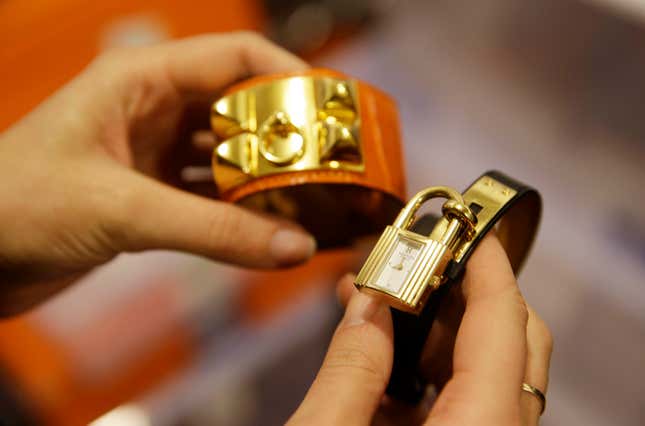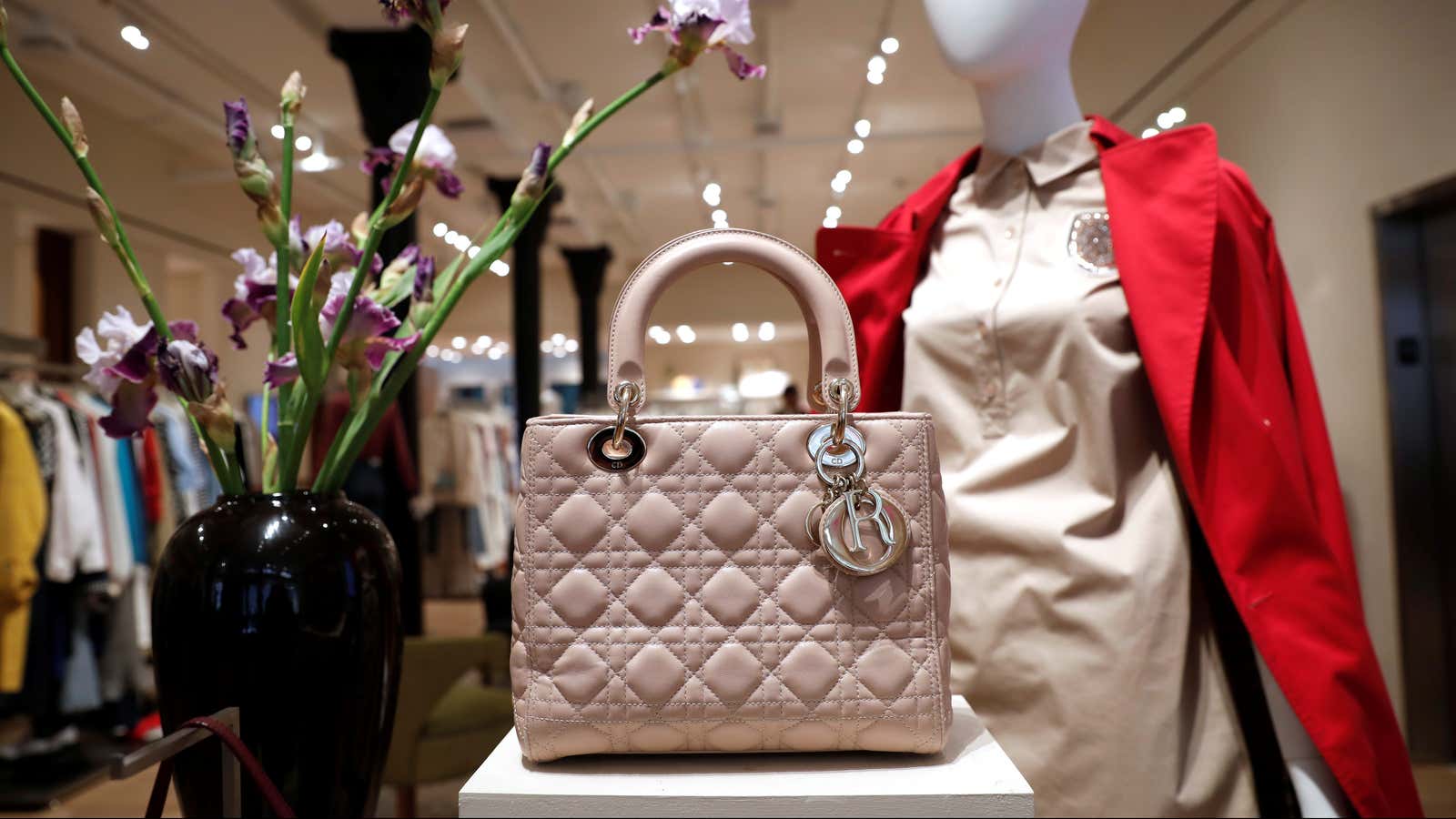The RealReal’s business is built on trust. One of the world’s biggest sellers of pre-owned luxury goods, the company said so itself when it filed to go public in the United States in May.
“Trust is the cornerstone of our online marketplace,” it boasted. “Consignors trust us because we treat their items with the utmost care and quickly sell them at the optimal price. Buyers trust us because we have a rigorous authentication process.”
But recent investigations into how the company authenticates its wares are threatening to undermine that trust, prompting The RealReal to assert it does everything it can to make sure fakes don’t find their way onto its site.
On Nov. 5, CNBC published a story saying copywriters with minimal training and strict productivity quotas were the ones authenticating many of the items on the site. The report, based on interviews with nearly three dozen former employees and internal company documents CNBC obtained, described how mislabeled and counterfeit items allegedly made it onto The RealReal. According to CNBC, a number of former employees “said the company’s claim of expert authentication was not accurate.”
And that wasn’t the first time such claims have surfaced. In September, Fashionista reported that an investigation by The Capitol Forum, a Washington D.C.-based news and legal analysis firm focused on consumer-protection issues, claimed under-trained copywriters were authenticating the majority of items. The group said it spoke with seven former copywriters at The RealReal. “They give you a quick 5-minute presentation on what things should look like and then have you go,” one of them told The Capitol Forum.
The RealReal initially tried to brush off the allegations. “This company’s actions and misrepresentations are clearly calculated to sell their subscriptions and improperly manipulate the market for the benefit of short-sellers on behalf of their subscribers,” the company told Fashionista in a statement about The Capitol Forum report. “These people are not journalists and they are not credible.”
The latest report by journalists at CNBC, however, hasn’t been so easy to disregard. The RealReal’s stock price fell more than 7% in the wake of its story.
In a statement responding to CNBC’s report, The RealReal said it “does not accurately represent the depth of our team’s expertise and the thoroughness of our authentication process.” The company added it makes every effort to accurately authenticate items and will always work with customers to resolve any issues. “We stand behind both our process and authenticity guarantee, and will continue to provide a safe and reliable platform for buying and consigning luxury items,” it said.
The RealReal differentiates itself from competitors by emphasizing that it takes possession of the items it sells, and reviews them to make sure they’re genuine and in good condition—unlike how rival sites allow sellers to list items themselves. It does have a dedicated authentication team, though it acknowledged copywriters also do authenticate items.

Founder and CEO Julie Wainwright talked about the process on a call with investors earlier this week after one analyst asked about the claims around authentication. First, receivers at the company’s processing centers review items and separate the ones deemed “high-risk,” based on traits such as brand, value, source, and style, Wainwright said. They then go to a team of dedicated authenticators. “Other items are authenticated by our copywriters,” she said, adding that the copywriters receive training, while an audit team performs additional checks.
Some customers have complained, saying items they bought on The RealReal turned out to be fakes. But precisely how many slip by The RealReal’s authenticators is hard to say. According to Business of Fashion (paywall), the company sent an email to customers admitting it “strives for perfection, but may not be perfect every single time.” Footwear, clothing, and leather goods are the most-counterfeited goods in the world.
One of the company’s challenges is the bigger it gets, the more items it has to review. In its most recent quarter, more than $250 million worth of merchandise moved through the site. That number continues to grow rapidly as the resale market booms. “Our success depends on the accuracy of our authentication process,” The RealReal admitted in its IPO filing. Allowing fakes to slip through could harm its reputation and potentially open it to liability, it noted.
So far, its reputation with shoppers has remained largely untarnished. It has also attracted brands such as Stella McCartney and Burberry as partners.
In a Nov. 4 note to clients, investment firm Cowen called authentication “an area of investor concern” for The RealReal. But it believes the company “is the only player that can currently authenticate luxury goods across various categories with scale.”
